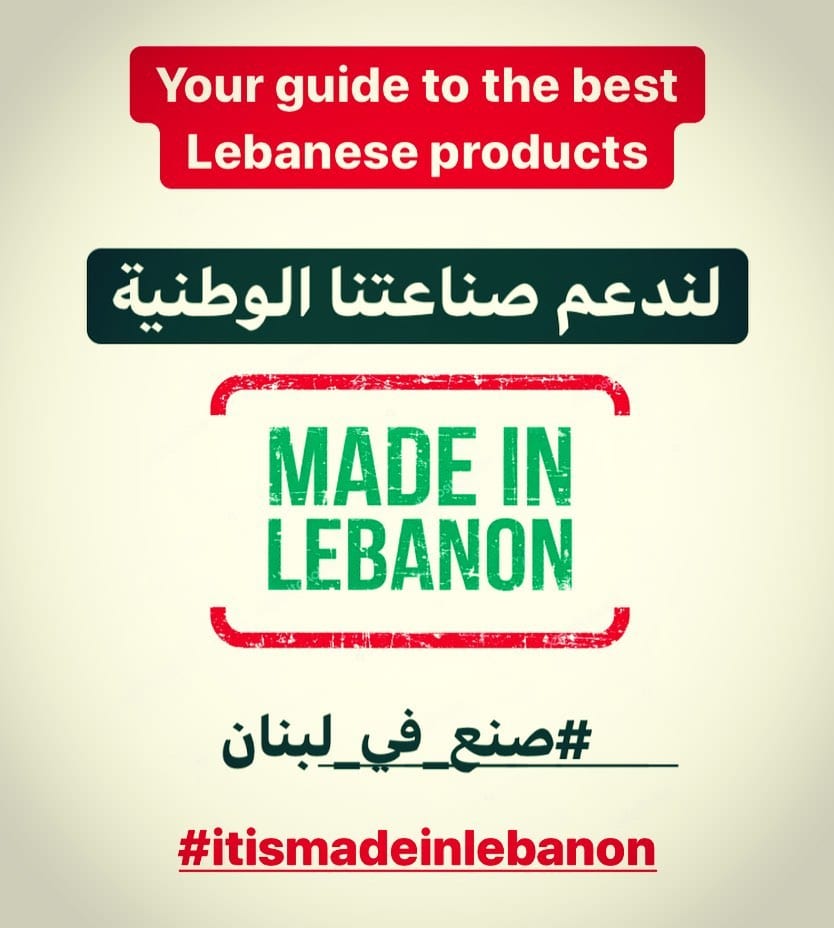Bank restrictions in addition to the rising Lebanese pound to dollar exchange rate are marks of the crisis facing Lebanon. Importers are having a major difficulty importing goods to Lebanon. Therefore, most of the foreign goods’ prices are increasing and available in some stores and not in others.
It is really not a big deal for some foreign products to go missing especially that there is a Lebanese counterpart waiting on the shelves. The revolution has reflected positively on our local products, and Lebanese initiatives have been encouraging our support of locally manufactured products.
These initiatives can be seen trending on twitter under the name #labnena or #buylebanese. Many local commerces have also dedicated extra efforts to ensure that people know that their products are “Made in Lebanon.”
With the economy crashing, the unemployment increasing, and businesses shutting down, it has become a must for the Lebanese people to direct their attention to our own productions and to our own products to be our main focus.
It is important that we take that step towards supporting local businesses and factories that have hundreds of Lebanese workers.

![]() @iampatrickchkaibanembedded via
@iampatrickchkaibanembedded via
Most Lebanese manufacturers, including The Good Thymes, Go Baladi, Taanayel, and Ghandour, have all started promoting their products more vigorously. The open-air market that recently took place in Martyrs Square was in support of Lebanese products.
Even though there are many products being manufactured in Lebanon, we also lack many, like glass factories that have long stopped working.

![]() @awholelottalovestudioembedded via
@awholelottalovestudioembedded via
The revolution has sparked the soul of patriotism that has long been dormant within the Lebanese people. In the spirit of supporting Lebanese products, some are even moving into personally investing in small plots of lands.
The nation fears the total economic collapse, and concerns are rising about the half paychecks employees are getting.

![]() @localebaneseproductsembedded via
@localebaneseproductsembedded via
According to Joe Abi Harb, Co-founder of Miel Du Levant, people do not buy local products because they lack trust in them. The main problem is that local businesses are having a hard time evolving in the current environment; that, in addition to the increasing prices of energy and raw materials.
These initiatives of local manufacturers and supporters are important now more than ever. It is also reminding us that there are local goods and that there are hundreds of Lebanese workers in these companies, hence hundreds of families at stake.

![]() @localebaneseproductsembedded via
@localebaneseproductsembedded via

